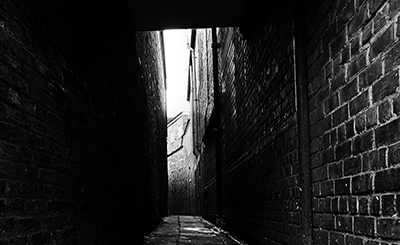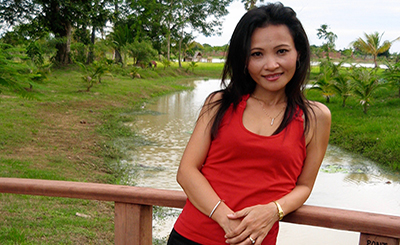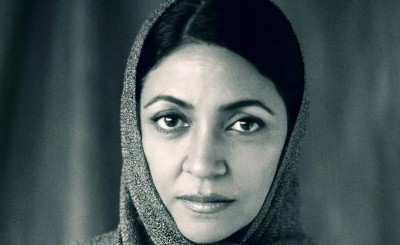
This poem is part of our world poetry special issue, with the focus on Turkey, curated by Ceyda Elgül, an instructor of translation at Department of Translation and Interpreting Studies in Istanbul’s BoÄŸaziçi University
Editor’s note: “No man is an island entire of itself/every man is a piece of the continent, a part of the main...” wrote John Donne, whose death anniversary falls on March 31. However, amid the shared threat of a global pandemic, as we practise social distancing and seek refuge in the self, we may see ourselves as islands unto ourselves, rafting along the sea of life. As reports of people dying of coronavirus around the world come in, all of us at The Punch Magazine feel diminished as we are “involved in mankind”.
COVID-19 destroys lives, but as human race, we have always created what is greater than us — literature. It’s a dark and difficult period in the march of human civilisation. But this is also the time that will produce the best of literature. “What one writer can make in the solitude of one room is something no power can easily destroy,” Salman Rushdie once said. Poets and writers throughout history have always shaped the world, and stopped it from “going to sleep”. Someday, when all this is over, the world may not be the same, and we may have lost millions of our loved ones to the contagion, but, by then, poets and writers who are witness to this moment in history will have created life-affirming literature that will outlive us. We do hope that this phase proves to be just a “short sleep” and that we may soon “wake eternally” and emerge into the light — stronger and well-healed.
This poem is part of our world poetry special issue, with a focus on Turkey, curated by Ceyda Elgül, an instructor of translation at Department of Translation and Interpreting Studies (DTIS), BoÄŸaziçi University in Bebek (Istanbul). It presents a selection of poems translated during a workshop in Turkey last year.
Curator’s Note: Poetry is generally associated with untranslatability. Poets are assumed to deconstruct and refashion the language, which eventually puts it in a state that cannot be replicated in another language. This portrayal would seemingly suggest that poems are “islands” that have no contact with “other shores”.
In July 2019, a group of professional poets, translators, and scholars from different linguistic and cultural backgrounds gathered at Büyükada, the largest of the nine “Princes’ Islands” in the Sea of Marmara, near Istanbul, to start a series of poetry translation workshops entitled “Island in Translation”. The gathering aimed to celebrate poetry translation as collaborative-creative production. A selection of island poets and/or poems with island themes was translated. The poets and the poems came from the Princes’ Islands (Istanbul), Cyprus, the Caribbean, and the Isle of Man. During the two-day workshop, the gathering delved into island literature from the viewpoint of translation and proposed corresponding images for island-poems in other languages, including English, Turkish, Korean, Kurdish, and Japanese. Metaphorically speaking, the group explored how “island-poems” and “other-shores” could be brought together.
Besides this poem by Turkish poet-actor-visual artist Erkut Tokman (translated by Mark David Wyers and Ceyda Elgül), other translations include poems by late Caribbean poet, playwright and theatre director Derek Walcott (translated by Özlem Berk Albachten); Turkish writer-stage director-theatre critic Melisa Gürpınar (translated by Ceyda Elgül); Turkish poet-essayist-novelist Enis Batur (translated by Saliha Paker); Sait Faik Abasıyanık, one of the major short story writers in Turkish literature in the 20th century (translated by Åžehnaz Tahir GürçaÄŸlar and Ä°ldar Gün GürçaÄŸlar); Isle of Man-based English teacher Usha Kishore (translated by Seyhan Bozkurt Jobanputra and Rakesh Jobanputra); Özdemir Asaf, an eminent figure of contemporary Turkish Literature (translated by Seyhan Bozkurt Jobanputra and Rakesh Jobanputra); American poet Mel Kenne (translated by Mark David Wyers, Ä°dil KaracadaÄŸ and Gökçenur Ç.), another Turkish poet Haydar Ergülen (translated by Mark David Wyers and Ä°dil KaracadaÄŸ); Turkish-Cypriot poet Mehmet Yaşın (translated by Bilal Çelik and BaÅŸak Ergil); Turkish poet Muzaffer Tayyip Uslu (translated by Muazzez Uslu); and Turkish poets Efe Duyan, Nihat Özdal and ÇaÄŸla Meknuze (translated by Gökçenur Ç.). In respect of the long tradition of poetry translation, the translations are presented along with the source poems so as to enable parallel reading.
The Woman of the Seas
In memory of the island where I was born and raised…
She came bearing autumn winds on her bosom
as the nocturnal moonglimmer slipped into her heart
pacing off time like a cat
in the memory of mussels
leaving her sorrow to moss-covered dreams
the Woman of the Seas
Nature would awaken in her body,
death slept in an old rowboat
where seagulls perched,
the house of a priest
where he raised his pigs
spoke like a cemetery
in the silence of a monastery
on the top of a hill
Even the sea has aged today, the woman said again,
the sadness of the fishermen fell upon scarlet hills,
like swallows we migrated from our loneliness
straight into a horrific era
Like never before the wind and waves made love
their voice echoed among the cliffs
a human howl more piercing than a gull’s
pierced through time.
In a crystal mirror
her glances recalled
an ancient memory
the sacred ceremony of humanity,
the Woman of the Seas
A poor islander poured out
his heart to the imam
he made vows
placing stone upon stone
binding trees with colored thread
he buried his suffering
in a superstitious riddle
so it would remain there,
brushing aside the Koran and the azan,
he got his gifts and slipped into a monastery...
The day shivered on the cliffs
blanketed and unblanketed by the sea
along its shoreline
the warmth of summer breezes
was forgotten in gardens and homes,
holy springs and wells
forgave the sins of Greek girls
The Woman of the Seas
strung up fish like hanging laundry
Mackerel
Corkwing
Wrasse,
as they slid from the nets
into the boats of fishermen
like a baby slipping from her vagina,
she cleaned their bones of the hatred
borne by the civilization of sardines.
The devil slept on the ground
in an old graveyard,
as the secret snuck out the door
of a paint-peeled mansion
you, the sea, would sing out
to the blue skies and seagulls
The woman listened to the night
as if it was music,
the waves reared up
darkness reminded her of red wine,
in the daunted wrath of a storm
she knitted sturdier sweaters
for her babies,
as her food was stewing in a pot
an era was boiling in a witch’s cauldron
steeped in the drunkenness
of the dead
The Woman of the Seas
still weaves the fishermen’s nets
hymning
her confessional songs
to the balance of dying nature
Priest
Imam
Rabbi
It is time to depart
The world of the Monastery.
“The Woman of the Seas” (Trans. Mark Wyers and Ceyda Elgül), The Voice Roaming the Unknown (Bilinmezi DolaÅŸan Ses), Yitik Ülke Publishing, 2007.
Denizlerin Kadını
DoÄŸup büyüdüÄŸüm Ada’nın anısına
Sonbahar rüzgârlarını getirdi kucağında
gececi yakamozlar düÅŸerken yüreÄŸine
bir kedi gibi adımladı zamanı
midyenin belleÄŸinde,
yosun baÄŸlamış düÅŸlerine terk etti acılarını
Denizlerin Kadını
Doğa uyanırdı bedeninde,
eski bir teknede ölüm uyurdu
martıların tünediÄŸi,
manastır sessizliğinde bir papazın evi
domuzlarını beslediği,
bir mezarlık gibi konuşurdu tepede
Deniz yaÅŸlandı dedi bugün de kadın;
balıkçıların hüznü düÅŸtü kızıl tepelere,
kırlangıçlar gibi göç ettik yalnızlığımızdan
korkunç bir çağın ta içine..
Dalgalar rüzgârla bir baÅŸka seviÅŸti
kayalıklarda yankılandı ses
bir insanın çığlığı martınınkinden de tez
delip geçti zamanı,
eski bir anıya
kristal bir aynadan dokundu bakışları,
insanlığın kutsal törenine
Denizlerin Kadını
Ä°mam’a dert yandı bir fakir adalı
adaklar adadı taÅŸ taÅŸ üstüne
ipliklerle bağladı ağacı,
tutsak kalsın diye acılar batıl bir bilmecede,
unutarak Kuran’ı namazı evde
elinde hediyelerle bir manastıra daldı…
ÜÅŸüdü kayalıklarda gün
deniz bir açıp bir örtünce üstünü kıyılarında;
bahçelerde ve evlerde unutuldu
yaz esintilerinin ılıklığı,
bağışlandı ayazmalarda, kutsal sularda
Rum kızlarının günahları
Balıkları çamaşır asar gibi dizdi iplere
Denizlerin Kadını
Uskumru
Cırcır
Lapina
vajinasından çıkmış bir bebek gibi
kayarken aÄŸlarından teknelerine balıkçıların
elleriyle temizledi kılçıklarından
nefretini sardunya uygarlığın
Şeytan uyurdu toprakta, eski bir mezarlıkta,
boyaları dökülmüÅŸ bir köÅŸkün kapısından
süzülürken giz
mavi göklere, martılara
ÅŸarkı söylerdin sen deniz
Bir musiki gibi dinledi geceyi kadın
şahlanıyordu dalgalar
kırmızı bir şarabı hatırlatıyordu karanlık
bir fırtınanın yılgın öfkesinde
kadın daha saÄŸlam kazaklar örüyordu bebelerine,
yemeÄŸi beklerken tencerede
bir çaÄŸ kaynıyordu cadı kazanında
ölülerin sarhoÅŸluÄŸunda
Denizlerin Kadını
hâlâ örüyor balıkçıların aÄŸlarını
adıyor
ölmekte olan doÄŸanın dengesine
günah çıkartan ÅŸarkılarını
Papaz
Ä°mam
Haham
Devir-i terk,
Dünya Manastırı
More from The Byword
Comments
*Comments will be moderated












